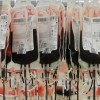Mood Altering Microbes
Interview with
Chris - Researchers from University College Cork and McMaster University in Canada have found that the so-called good bacteria, also known as probiotics, don't just affect the digestive tract. They can also affect mood and potentially have an impact on stress and depression. Joining us now to discuss how they've down this work and what they've discovered is Professor Paul Forsythe and he's at McMaster University. Hello, Paul.
Hello, Paul.
Paul - Hi, there.
Chris - So first of all, what was the question you started out by asking when you were doing this work?
Paul - Well, over recent years there's been real increase in our understanding of the importance of the normal bacteria in the intestine, the gut microbiota, and how it influences a range of physiological systems. What particularly interested us was evidence emerging that these bacteria could influence the brain and brain development. We've been investigating the particular bacteria that we used in the study for some time, and we had demonstrated it could actually alter the activity of nerve cells in the intestines of mice. But what was really interesting is we could actually reduce the perception of pain signals coming from the gut and we took that as a good indication that it was modifying the communication between the gut and the brain. So we wanted to explore this further and to see if we could actually detect changes in brain neurochemistry and subsequently whether these changes in brain neurochemistry might alter the behaviour of these animals.
Chris - So the bacteria that go into the intestine in some way change the chemical environment in the tissue of the intestine, which in turn changes the activity of the nerve cells in the intestine. You're saying that can then be propagated, or at least you speculated that it could be propagated, up to the brain and, in turn, alter neurochemistry in the central nervous system?
Paul - That's it and actually what we demonstrated was that the Vagus nerve, which has already been and shown to be an important communication system between the gut and the brain, was critical to mediating the signals from the bacteria to the brain. So when there was no signalling going along the vagus nerve we didn't see the changes in the brain when we fed the bacteria.
Chris - So talk us through the experiment. You did this in mice.
Paul - We did, yes. So we fed mice with a particular strain of lactobacillus, Lactobacillus rhamnosus, and we fed them for 28 days. We then conducted a number of behavioural tests looking for things like anxiety and then we looked at the brains of these animals. We initially focused on the GABAergic system in the brain and so we looked at receptors for the neurotransmitter GABA and we saw changes in these receptors in the brain.
Chris - Which bits of the brain did you look at and which bits of the brain showed those changes? More critically, were they the bits of the brain that would be consistent with the observed behavioural effects you saw in mood, stress, depression, that kind of thing?
Paul - We did. So, we focused on the hippocampus and the medulla. They have both been related to changes in things like depression and anxiety. So, the changes we saw were consistent with the sorts of changes we were getting in behaviour - so reductions in anxiety-like behaviour.
Chris - So how do you know that the link in the chain was gut to nervous system i.e. Vagus nerve to brain? How did you rule out the fact that the animals weren't just feeling better and healthier because they have these bacteria in their guts, and this was impacting on their behaviour?
Paul - So what we actually did is we divided [cut] the vagal nerve so there was no signalling going from the intestine to the brain through the vagus nerve. We lost the behavioural effects and lost the changes in the brain chemistry, indicating that this signal through the Vagus was critical. And animals that were fed with just broth without the bacteria, they had no changes in their behaviours at all.
Chris - So that's pretty encouraging isn't it? It shows that there is definitely some kind of connection going on - via that Vagus nerve - between the gut and the brain. You only looked at one nerve transmitter chemical though, and there are many others in the brain. Are you now going to go ahead and look at some of the other, what we know are mood-related, nerve transmitter chemicals and see if they also get changed?
Paul - Exactly. I mean, we focused just on the GABAergic system in this study, but, as you said, there is a whole range of nerve transmitters involved. We don't know the extent of the changes caused by feeding these bacteria and that's definitely something we're actually looking at, at the moment.
Chris - And what about in humans? Is there similar clinical data that it has the same effects when humans consume these bacteria in the yoghurt drinks and things?
Paul - The studies in humans are very limited and tend to be looking at reducing anxiety or chronic fatigue and things like that. But the studies have been quite small and the data is limited, so we don't really know what the effect of these bacteria would be on humans. That's obviously something that we want to look at.
Chris - And of course related to that is what actually are the bacteria doing to have that effect in the gut itself, and is there some other way of mimicking their presence, or mimicking their effects? For instance, if you ate something different, would that have the same sort of impact on the gut as these bacteria do?
Paul - Sure, exactly. I mean, looking at the bacteria itself, so what are the characteristics of that bacterium that allow it to mediate these signals? Is it something to do with the cell wall of the bacteria, or is it a product that that bacterium produces. And then how does it transmit the signal to the Vagus nerve? Does this involve other cells in the gut - immune cells perhaps - or is it a direct effect on the nervous system? And then we're also interested in looking at what's the nature of the change of the signal along the Vagus nerve that mediates these effects. I mean, it's interesting to note that electrical stimulation of the Vagus is actually an approved treatment for depression. And so it's quite encouraging that it seems our bacteria are acting on that same signalling pathway.
Chris - Alright. We must leave it there. Thank you, Paul. I think it's very good proof that you are, genuinely, what you eat. That was Paul Forsythe. He's an Assistant Professor in the Department of Medicine at McMaster University and he's published that study he was discussing, this week, in the journal PNAS.










Comments
Add a comment